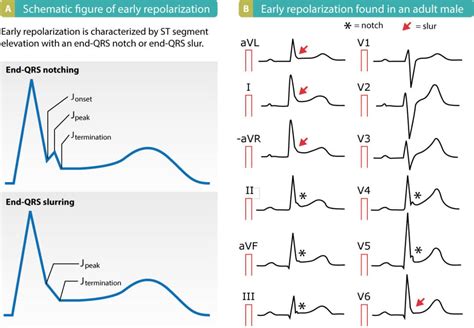causes of lv hypertrophy | qrs widening and repolarization abnormality causes of lv hypertrophy Hypertension and aortic valve stenosis are the most common causes of LVH. In both of these conditions, the heart is contracting against an elevated afterload. FIND OUT MORE. Palazzo Parisio is one of Malta's most beautiful and desirable destinations for luxury and style. From fine dining, perfectly served Afternoon tea to Wedding events, the Palazzo is an idyllic location.
0 · qrs widening and repolarization abnormality
1 · nice cks left ventricular hypertrophy
2 · left ventricular hypertrophy treatment uk
3 · left ventricular hypertrophy on ecg
4 · left ventricular hypertrophy nice guidelines
5 · eccentric vs concentric Lv hypertrophy
6 · Lv hypertrophy on echo
7 · Lv hypertrophy criteria
Discover the Air‑King, a tribute to the pioneers of flight and to Rolex's role in the epic story of aviation. More on rolex.com.
Left ventricular hypertrophy (LVH) is an increase in the weight of the left ventricle .
Uncontrolled high blood pressure is the most common cause of left ventricular hypertrophy. Complications include irregular heart rhythms, called arrhythmias, and heart failure. Treatment of left ventricular hypertrophy depends on the cause.
Left ventricular hypertrophy (LVH) is an increase in the weight of the left ventricle due to thickening of the left ventricle walls, an increase in space within the left ventricle, or both. The two most common causes of LVH are high blood pressure and aortic stenosis (a heart valve disease). LVH symptoms are usually silent for years until the . Hypertension and aortic valve stenosis are the most common causes of LVH. In both of these conditions, the heart is contracting against an elevated afterload. Left ventricular hypertrophy (LVH) makes it harder for the heart to pump blood efficiently. It can result in a lack of oxygen to the heart muscle. It can also cause changes to the heart’s conduction system that make it beat irregularly (arrhythmia).
Left ventricular hypertrophy, or LVH, is a term for a heart’s left pumping chamber that has thickened and may not be pumping efficiently. Sometimes problems such as aortic stenosis or high blood pressure overwork the heart muscle. The left ventricle hypertrophies in response to pressure overload secondary to conditions such as aortic stenosis and hypertension. This results in increased R wave amplitude in the left-sided ECG leads (I, aVL and V4-6) and increased S . A 2022 study suggests that the primary causes of LVH are high blood pressure and aortic valve stenosis, a condition in which the valve leading from the left ventricle to the aorta.Left ventricular hypertrophy (LVH) is thickening of the heart muscle of the left ventricle of the heart, that is, left-sided ventricular hypertrophy and resulting increased left ventricular mass. Causes.
qrs widening and repolarization abnormality
Left ventricular hypertrophy, or LVH, is a term for a heart’s left pumping chamber that has thickened and may not be pumping efficiently. Sometimes problems such as aortic stenosis or high blood pressure overwork the heart muscle.Uncontrolled high blood pressure is the most common cause of left ventricular hypertrophy. Complications include irregular heart rhythms, called arrhythmias, and heart failure. Treatment of left ventricular hypertrophy depends on the cause. Treatment may include medications or surgery. Uncontrolled high blood pressure is the most common cause of left ventricular hypertrophy. Complications include irregular heart rhythms, called arrhythmias, and heart failure. Treatment of left ventricular hypertrophy depends on the cause.
nice cks left ventricular hypertrophy
Left ventricular hypertrophy (LVH) is an increase in the weight of the left ventricle due to thickening of the left ventricle walls, an increase in space within the left ventricle, or both. The two most common causes of LVH are high blood pressure and aortic stenosis (a heart valve disease). LVH symptoms are usually silent for years until the . Hypertension and aortic valve stenosis are the most common causes of LVH. In both of these conditions, the heart is contracting against an elevated afterload.
Left ventricular hypertrophy (LVH) makes it harder for the heart to pump blood efficiently. It can result in a lack of oxygen to the heart muscle. It can also cause changes to the heart’s conduction system that make it beat irregularly (arrhythmia). Left ventricular hypertrophy, or LVH, is a term for a heart’s left pumping chamber that has thickened and may not be pumping efficiently. Sometimes problems such as aortic stenosis or high blood pressure overwork the heart muscle.
The left ventricle hypertrophies in response to pressure overload secondary to conditions such as aortic stenosis and hypertension. This results in increased R wave amplitude in the left-sided ECG leads (I, aVL and V4-6) and increased S . A 2022 study suggests that the primary causes of LVH are high blood pressure and aortic valve stenosis, a condition in which the valve leading from the left ventricle to the aorta.Left ventricular hypertrophy (LVH) is thickening of the heart muscle of the left ventricle of the heart, that is, left-sided ventricular hypertrophy and resulting increased left ventricular mass. Causes.
Left ventricular hypertrophy, or LVH, is a term for a heart’s left pumping chamber that has thickened and may not be pumping efficiently. Sometimes problems such as aortic stenosis or high blood pressure overwork the heart muscle.

base dior backstage
left ventricular hypertrophy treatment uk
$7,895.00
causes of lv hypertrophy|qrs widening and repolarization abnormality

























